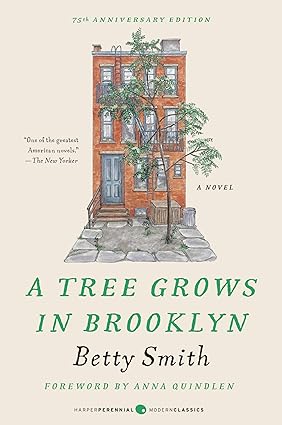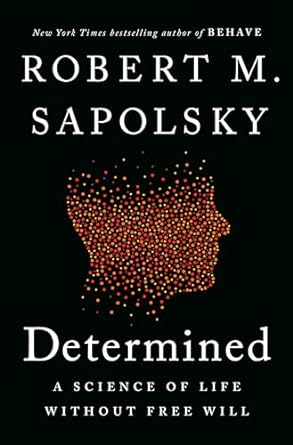Jeff Maurer takes down a progressive fantasy in exactly 25 words:
The only part of this that is accurate is that with rent control, no one will fix up that little pink pile of shit, ever. https://t.co/d4kPpUhHby
— Jeff Maurer (@JeffMightBWrong) June 10, 2024
Fair play to him. (Sorry, I'm in the middle of reading Tana French's latest.)
Also of note:
-
Blame it on the Bossa Nova. Megan McArdle requests that we point our shaky fingers elsewhere: Don’t blame the Supreme Court for universities’ stunning reversal on DEI.
After a decade of ever-escalating commitments to diversity, equity and inclusion, elite campuses are reversing course.
Many Ivy League admissions offices reinstated SAT requirements, even though doing so will make it harder to evade stricter Supreme Court scrutiny of racial preferences. MIT rescinded its requirement that aspiring faculty provide DEI statements explaining how they would advance its principles. Harvard’s faculty of arts and sciences soon followed, and the rest of the Ivy League will likely come trailing behind. Harvard also announced it would no longer be taking positions on matters outside the core functions of the university, while Stanford’s faculty voted to reaffirm principles of academic freedom and exercise restraint on institutional pronouncements.
It's amazing to watch such an abrupt volte-face. What’s even more amazing is how far things went beforehand and how long the correction took to arrive.
Ms. McArdle oh-so-gently notes that DEI was built on well-meaning prevarication; but as time went on, the lies took on their usual sitcom course, snowballing until the whole rickety structure became unsupportable.
Classical reference. Why don't they ever play that song in my supermarket? Probably because people would be dancing in the aisles.
-
Why make up conspiracy theories about the Deep State, when the simple truth is so outrageous? James Taranto writes at the WSJ on The Deep State vs. Taxpayers. Quoting a Washington Times story:
The IRS is struggling to get its employees back to work in person at least 50% of the time, and Treasury Secretary Janet Yellen said the agency’s labor union is the chief hurdle.
In striking testimony to Congress, Ms. Yellen suggested that the department may have to renegotiate contracts to get those employees back to their desks more often.
“Some of the employees are covered by collective bargaining agreements. They are members of a union, and to enforce those rules requires an agreement with the union,” she told the Senate Appropriations Committee last week.
Apparently, Federal "workers" have been allowed to unionize since the Jimmy Carter administration. That, to put it mildly, was a mistake.
-
Really trying to win Michiganistan, I guess. John Podhoretz writes of four "clarifying moments" that occurred recently: Heroism and the Biden Brainless Trust.
It was a clarifying weekend both in the Middle East and in Washington. Clarifying in the first place because Israel got some of its mojo back in the staggering rescue of the four hostages in broad daylight from separate buildings in the Nuseirat refugee camp—which is technically under UN control, let us not forget. And one of those buildings was an UN refugee school. In other words, the UN was being used as a hostage prison. So we had four Israelis being used as slaves and household workers in territory controlled by the the world’s “peacekeepers.”
Those of us who have long advocated literally blowing up the UN buildings in Turtle Bay in Manhattan—one of the first covers of the long-defunct magazine Insight, which I edited beginning in 1985, depicted the UN tower being dismantled, so that’s how long ago this idea has been percolating—now have renewed reason to press our case. The UN pays no taxes. Tear it down and there’s a huge development site in the most desirable spot in the city that could return billions in lost revenue. Meanwhile, the UN could be relocated to someplace that could use its commerce and doesn’t mind how it sheds blood and treasure in the name of Israel-hatred, like Lagos or South Sudan, and where there are no boutiques for the wives of monstrous dictators to buy stuff marked up especially for them. Rid my city of this organization that employs out-and-out neo-Nazis like UN “special rapporteur” Francesca Albanese, a person (I hesitate even to call her a person) whose views on Israel might cause Josef Goebbels to say, “Well, now you go a little far.” Not to mention one of the world’s greatest villains at the moment, UN General Secretary Guterres, a man who demonstrates the way in which a lifelong commitment to socialism now practically requires all-but-open Jew-hatred to maintain its purity as an ideological calling.
You'll have to click over for the other clarifying moments. JPod's on fire.
-
Confirmed. At Power Line, Steven Hayward notes Facebook Censoring Climate Dissent Again.
We’ve often cited the work of Roger Pielke, Jr. of the University of Colorado, who science Substack, The Honest Broker, is essential reading. What you should know about Roger (whom I know quite well) is that he is a centrist-liberal Democrat, believes climate change is a genuine future risk, and supports a carbon tax and other measures to fight it. But he also calls bull—- on a lot of climate extremism and exaggeration. His work has been cited by the “official” “consensus” scientific reports of the UN’s Intergovernmental Panel on Climate Change (IPCC), and he even forced Al Gore to change some of the claims Gore used to make about thermageddon.
Hayward requested readers to make a normal FB post pointing to Pielke's Substack article, Climate Science is About to Make a Huge Mistake. That "huge mistake"? Pushing "an outdated extreme emissions scenario called RCP8.5" as the proper one to guide international policy.
Reader, there is nothing outrageous or dangerous in Pielke's article; check for yourself.
But, yup, within a few seconds of my posting a link to the article, it got taken down. I have appealed.
| Recently on the book blog: |


![[The Blogger and His Dog]](/ps/images/me_with_barney.jpg)



